King Abdullah of Saudi Arabia and Bashar al-Assad, Syria’s president, held joint talks with Lebanon’s prime minister in order to quell tensions in a country on the brink of violence, should a U.N. inquiry into the assassination of former Lebanese prime minister Rafik Hariri result in accusations toward Hezbollah. Despite the fact that Saudi Arabia and Syria support opposing factions in Lebanon, the country’s two leaders visited together as a show of support for overall stability. Al Jazeera’s Rula Amin reports from Beirut.
Middle East & North Africa Archive
Free Newsletter

Stepped-up hostilities between Turkish forces and Kurdish guerrillas in southeastern Turkey and predominantly Kurdish northern Iraq coupled with a high-powered Iraqi Kurdish campaign to achieve greater autonomy are complicating U.S. efforts to ensure that Iraq remains united once American troops leave the country. The increased hostilities couldn’t come at a worse time for the Obama administration, which is preparing for next year’s withdrawal of U.S. troops from Iraq. The U.S. had hoped that closer Turkish-Iraqi Kurdish cooperation and Ankara’s conciliatory moves toward Turkey’s estimated 15 million Kurds — who account for approximately 20 percent of Turkey’s population — would end […]

Negotiations are set to resume in September between Iran and the P5+1 countries — the five permanent U.N. Security Council members along with Germany — with an eye to restarting a diplomatic process that might lead to a resolution of the stand-off over Iran’s nuclear program. The question is whether something akin to the 2003 Libyan breakthrough is possible — or even desirable. By that scenario, Iran would stop all of its efforts to achieve a nuclear weapons breakout capability — notably, the ability to enrich uranium. In return, the U.S. and its Western allies would agree to lift sanctions […]
It hasn’t gotten a lot of attention yet, but the Israeli helicopter that crashed in Romania is actually a major story. The copter had flown non-stop to Romania, with an in-flight refueling over Greece, as part of a “joint” air exercise designed to sharpen the IAF’s long-range search-and-rescue capabilities in unfamiliar terrain. In the past, the IAF has conducted similar drills, as well as long-range mock bombing runs, in Greek airspace. The implications of this latest setback for Israel’s military on a theoretical airstrike against Iran are significant. If this was a psychological operation targeting Tehran, it backfired. If it […]
As the final installment of a three-part series on Iran’s relations with the Gulf states, Global Insider explores Iran-Qatar relations. In an e-mail interview, Mehran Kamrava, interim dean of Georgetown University’s School of Foreign Service in Qatar and director of the Center for International and Regional Studies, discusses the state of Iran-Qatar relations. You can read Kamrava’s interview on Iran-UAE relations here, and on Iran-Bahrain relations here. WPR: What is the current state of Iran-Qatar diplomatic relations? Mehran Kamrava: Unlike the UAE or Bahrain, Qatar has maintained very cordial and close diplomatic relations with Iran over the last few years. […]
There have been a couple of “confirmed” inflection points in the Obama administration’s approach to Iran, Russia and China in the past few weeks, and the contrast between the outcomes is revealing, both about the relative challenges of the three portfolios, but also about the relative development of the three countries. With regard to Iran, although there are not yet any concrete outcomes, the Obama administration’s strategy of open-ended engagement accompanied by staged sanctions has clearly isolated Tehran, to an extent that many critics of the Obama approach — myself included — did not anticipate. In the past week, Iran […]
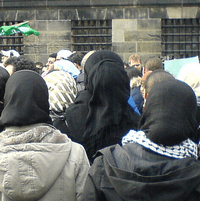
A very alarmist mood has lately become the norm among experts of Islam in Europe. Is Europe doomed to become an extension of the Arab West? If you ask the eminent historian Bernard Lewis, the answer is yes. Migration and demography are working toward creating “Eurabia.” This allegedly unstoppable march of Islam in Europe is causing unprecedented anxiety for both Europeans and Americans. Emotions run high, and facts are in short supply on both sides of the Atlantic. Americans are understandably concerned about the “next” Sept. 11. After all, wasn’t Mohammed Atta, the ringleader of the hijackers that struck that […]
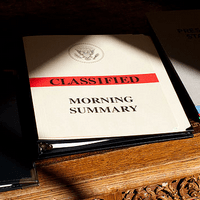
In terms of volume, the more than 90,000 documents posted on the WikiLeaks Web site has to be one of the largest publications on the Internet of classified U.S. government material. But in terms of content, the so-called Afghanistan War Logs don’t tell us anything that most people who have been following the war even casually don’t already know. For example, U.S. officials have long complained about support within Pakistan’s powerful spy agency, the Inter-Services Intelligence (ISI), for foreign terrorist groups — including the Taliban, which the ISI helped establish. The large number of Afghan civilian casualties resulting from coalition […]
Last week, Greek forces intercepted Turkish fighter jets while on training flights over the Aegean Sea. In an e-mail interview, Dr. Petros Vamvakas, assistant professor of Political Science at Emmanuel College, explains the context for the airspace dispute between Turkey and Greece. WPR: What is the nature of the airspace dispute between the two countries? Petros Vamvakas: The airspace dispute is one component of a more complex quarrel between neighbors. The 1982 United Nations Convention on the Law of Seas (UNCLOS) favors Greece, an archipelagic state, since extension of territorial waters to 12 nautical miles would effectively result in 90 […]
Although Ecuadorian President Rafael Correa and Venezuelan President Hugo Chavez are often lumped together in the same Latin American “populist left” basket, the fact that Correa is involved in mediating the latest manufactured crisis between Venezuela and Colombia underscores the difference between the two. It also suggests that power in the emerging geopolitical landscape will increasingly relocate toward the connecting states that manage to bridge differences between various feuding nodes. Clearly, Turkey is the most visible example of how that will work, but Qatar is another. And a detail from this NY Times article on the impact of sanctions on […]
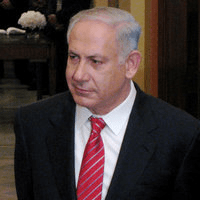
In the never-a-dull-moment world of Middle East politics, an important drama is unfolding in yet another key location. Forget for a moment the Iranian nuclear program. Ignore just for now efforts to get Israelis and Palestinians to meet face to face. Set aside the encounter between the Turkish prime minister and the leader of Hamas, speculation about how long the Egyptian president will live and who will succeed him, and the never-ending efforts to form a government in Iraq. It’s time now to take a closer look at the tense events in the inner sanctum of Israeli politics, and the […]
At a meeting of the Joint Iran-Bahrain Commission late last month, Iran and Bahrain signed a memorandum of understanding that includes a wide range of sectors such as oil, security, and finance. In an e-mail interview, Mehran Kamrava, interim dean of Georgetown University’s School of Foreign Service in Qatar and director of the Center for International and Regional Studies, explains the context of current Iran-Bahrain relations. To read Kamrava’s interview on Iran-UAE relations, click here. WPR: What is the current state of Iran-Bahrain diplomatic relations? Mehran Kamrava: After some neglect of the importance of the GCC states in the first […]
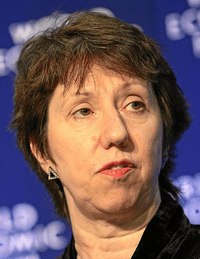
The European Union’s foreign policy chief, Catherine Ashton, and Iran’s top nuclear negotiator, Saeed Jalili, are currently involved in a diplomatic dance over resuming talks on Tehran’s nuclear program. If the talks do indeed come to fruition, Ashton could assume the negotiating role previously played by her predecessor, Javier Solana. While Solana’s diplomatic efforts ultimately did not bear fruit (.pdf), the circumstances that hampered his attempts to resolve the Iranian nuclear standoff — namely, the lack of U.S. participation and Iranian perceptions that the country had little to gain by talking with Europe — have since improved and could be […]
The UAE has implemented U.N. Security Council sanctions against Iran while toughening its stance on how the international community should deal with Tehran. In an e-mail interview, Mehran Kamrava, interim dean of Georgetown University’s School of Foreign Service in Qatar and director of the Center for International and Regional Studies, discusses recent developments in Iran-UAE relations. WPR: What is the current state of Iran-UAE diplomatic relations? Mehran Kamrava: Iran-UAE relations have always been characterized by a mixture of diplomatic tensions and yet increasing commercial ties due to the vibrant Iranian community in Dubai. The tension has resulted from two principal […]
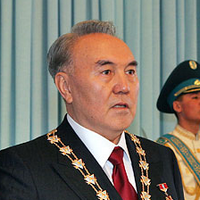
Last month, the Conference for Interaction and Confidence-Building Measures in Asia (CICA) passed an historic milestone, as heads of state and ministers representing 36 Asian nations met for the first time outside of Kazakhstan for a summit meeting in Istanbul. The organization, Asia’s equivalent to the Organization for Security and Cooperation in Europe (OSCE), boasts 22 member nations, ranging from Russia and China to Israel, India and Pakistan. Regrettably, Western media coverage of the summit focused almost exclusively on one sensational event: Iranian President Mahmoud Ahmadinejad’s tirade against Israel’s interception of the Freedom Flotilla to Gaza. The flavor of this […]
The Carnegie Endowment for International Peace’s Middle East Center director, Paul Salem, discusses Turkey’s position in a changing Middle East and abroad. Though Turkey’s foreign policy decisions have not recently lined up with that of the United States, Salem says that Turkey is not moving away from the West, rather just looking after its own economic interests.
